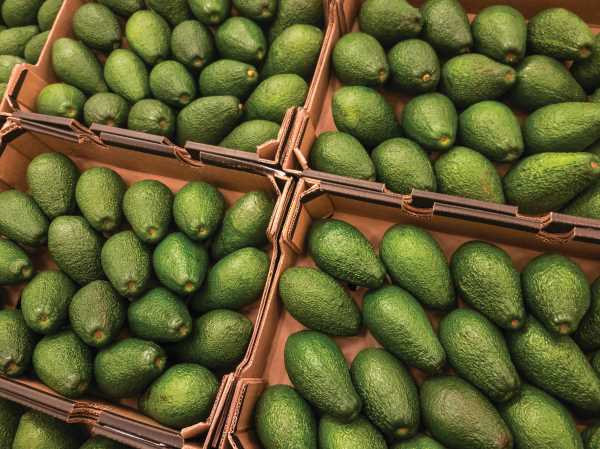By Heather Irvine, Partner, Bowmans
Farmers and processors of fresh fruits and vegetables are likely to receive questions from the Competition Commission in the coming weeks, as the Commission commences a market inquiry into the state of competition in the South African fresh produce value chain.
The terms of reference for the inquiry, which were published last year, indicate that the Commission’s Concentration Tracker has identified that “whilst large farms make up just 6.5% of all farms in South Africa, they accounted for 67% of total income in 2017/18”.
The Commission accordingly intends to examine a number of different fresh (unprocessed) fruit and vegetable markets, including apples, bananas, oranges and other citrus, pears, avocados, grapes; potatoes, onions, tomatoes, carrots and cabbages.
The inquiry will also assess market conditions in important input markets, such as fertilizer and pesticides. The Commission has already identified that certain of these markets may feature too few competitors, high barriers to entry and/or limited participation by small businesses and historically disadvantaged persons.
The Commission has extensive powers under section 43A-G of the Act to undertake a wide-ranging investigation into the general state of competition in a market, and to assess whether investigate whether there is any “feature of a market” which “impedes, distorts or restricts” competition.
The Commission need not establish that the Competition Act has been contravened by a particular company, or companies (for example, by a cartel fixing prices, or a dominant supplier or buyer abusing its dominance). The Commission can issue summons to compel companies to produce documents and/or data and may call witnesses to attend questioning under oath by Commission officials.
Given how wide the terms of reference for these inquiries typically are, the information or data requested by the Commission as part of a market inquiry can potentially relate to supply or customer relationships, new product development and strategy, pricing, capacity planning or future proofing, as well as corporate social investment, supply chain development and B-BBEE strategy.
In several market inquiries to date, the Commission has requested that companies attend sessions that are open to the public (and broadcast on social media), and answer questions about their business operations and strategy.
Although the Act allows companies to file a confidentiality claim in relation to any information or documents which are supplied to the Commission if they contain “confidential information”, the Commission tends to take a restrictive approach to these claims and frequently requests companies to review and reduce their confidentiality claims.
Submissions are generally published on the Commission’s website, and will form part of the record of the market inquiry in the event of any appeals being lodged. Accordingly, the market inquiry process presents a risk that highly sensitive business information may find its way into the hands of competitors, other regulators, government departments or trade unions. This needs to be carefully managed throughout, whilst ensuring that the company fully co-operates with the Commission.
At the end of a market inquiry, the Commission can recommend “new or amended policy, legislation or regulations”. In the context of the grocery market inquiry, for example, the Commission recommended that national supermarket chains should phase out clauses in shopping centre lease agreements which granted them the exclusive rights to sell products like meat or liquor in the shopping centre, or failing voluntary compliance, that Government should introduce new legislation, in the form of a statute, or regulations, or Code of Practice to compel them to do so.
The Commission can also initiate new investigations into complaints about anticompetitive conduct which contravenes the Act, or even refer complaints about this directly to the Tribunal for adjudication. Amendments to the Competition Act which took effect in 2019 also now empower the Commission to “take action” to “remedy, mitigate or prevent” any adverse effect on competition it has identified, which can include a recommendation to the Competition Tribunal to order a firm to divest of “shares, interest or other assets”.
It is important to bear in mind that the Competition Act requires that when the Commission takes a decision on whether any feature of a relevant market impedes, restricts or distorts competition, it must consider the impact of this adverse effect on small and medium businesses and firms controlled or owned by historically disadvantaged persons.
In the context of the Commission’s market inquiry last year into online platforms, the Commission’s Provisional Report included extensive recommendations that technology companies who were identified as ‘leading’ platforms should ‘ off-set the cumulative disadvantages’ faced by business owned by ‘historically disadvantaged persons’ and accordingly, the Commission recommended that these companies should all be ‘required’ to ‘institute an HDP programme targeted at overcoming barriers to participation’.
It is important for companies to anticipate demands of this kind arising from the inquiry, since these may potentially impose complex and/or costly long-term obligations on the business. It is advisable to give consideration early in the process to whether there are opportunities to proactively engage with the Commission on appropriate measures to support participation by small businesses and promote transformation in a manner which aligns with the company’s strategy as well as its budget.
The market inquiry process may involve several rounds of extensive information requests and opportunities to comment on the Commission’s provisional findings and proposals for remedies. Produces and processors of fruits and vegetables – particularly those identified by the Commission as participating in markets which suffer from high levels of concentration – should accordingly begin preparation of their legal and economic submissions as soon as possible.








